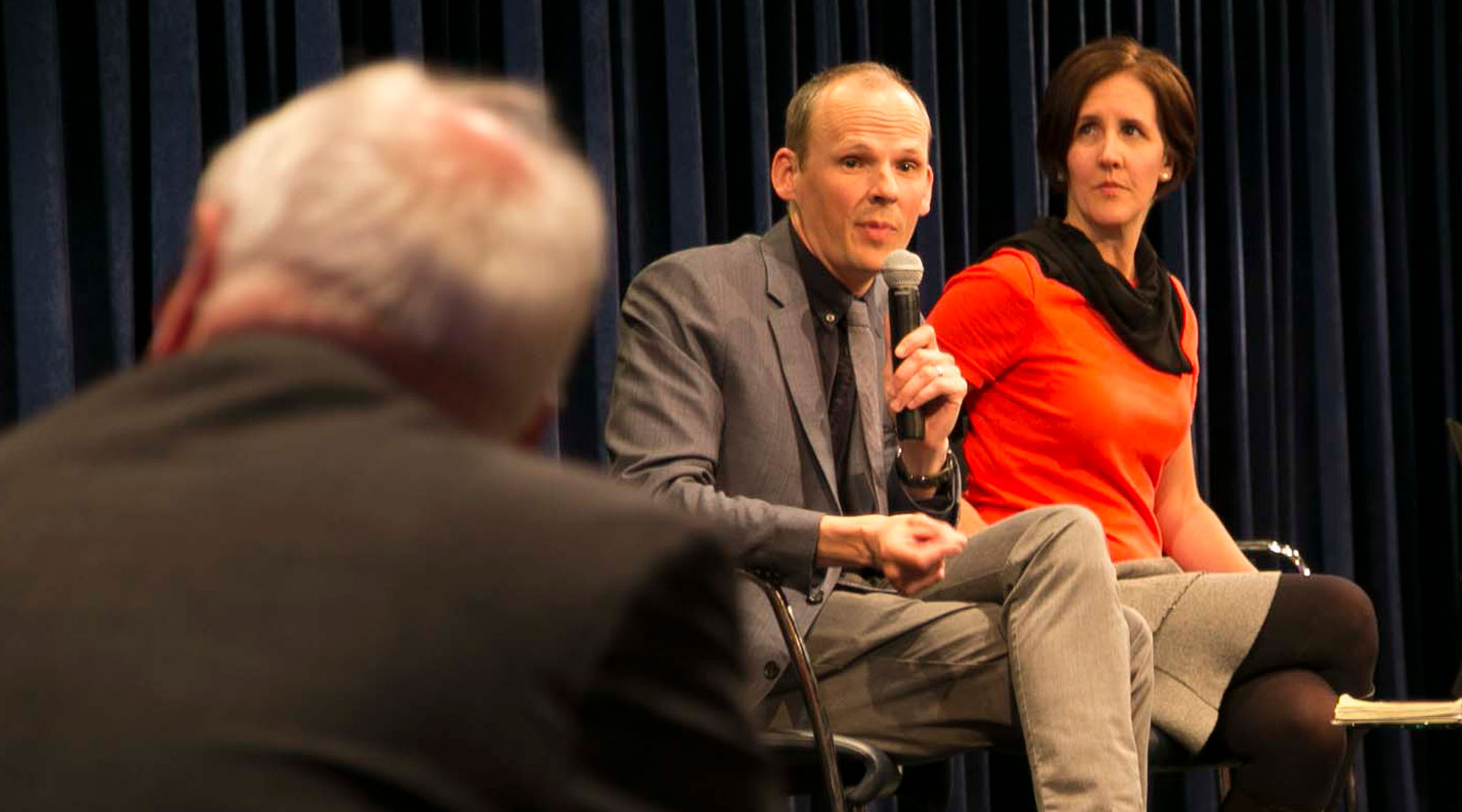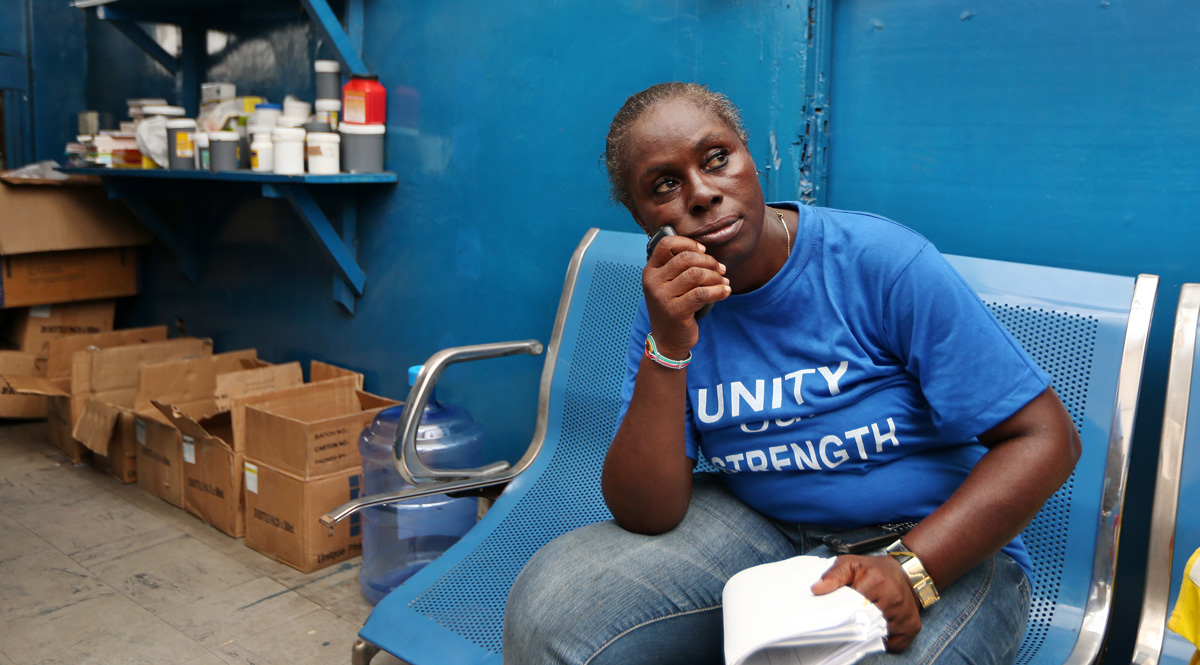Five years ago, a former colleague called to ask if I’d be interested in collaborating on a story.
At the time, I was an investigative reporter and editor at HuffPost. He was an editor at the International Consortium of Investigative Journalists, a newsroom dedicated to revealing systemic abuses of power, wealth and authority around the globe — where I now work.
I recall pacing the length of my Brooklyn apartment as he sketched a vision for an investigation that would lay bare the broken promises made by the World Bank, an institution built to lift people out of poverty. Too often, he explained, the bank financed projects that hurt the very people it was supposed to help, driving them from their homes and their jobs.
It sounded exciting. But there was a condition. HuffPost would be just one of many newsrooms across the world working on the story. To participate, I’d have to do something that I was bred to think was a form of journalistic treason: share my reporting with competitors.
MY reporting. Mine mine mine.
And not just some other reporters. Lots of them! Dozens! Working in newsrooms from Albania to Brazil.
For much of my career, investigative reporting had been a solitary, or small team affair. I had worked with other newsrooms, but never more than one at a time, and in each case the reporting team numbered no more than two or three. Story meetings were like chummy private dinners.
At ICIJ, they were banquets with dozens of guests I’d never met.
Reporting leads, I realized, were not the only thing I’d surrender. Collaborating means sharing control, which for obsessive, opinionated, cranky investigative journalist types, like, ahem, me, is an even stiffer mental block to get past. Deadlines, reporting strategy, communication with sources, data analysis — all and much more becomes part of a rolling discussion, with decisions made that serve the greatest good, but maybe not your own, specific interests.
Collaborative journalism is not a matter of giving something up… It is a chance to leverage one’s own limited reporting power, to accomplish journalism out of reach of any lone wolf.
I agreed to collaborate with ICIJ anyway, a decision that changed my career, and the entire way I think about journalism.
What I would learn is that collaborative journalism is not a matter of giving something up, or at least shouldn’t be viewed that way.
It is, instead, a chance to greatly leverage one’s own limited reporting power and expertise, to accomplish public-interest journalism of a quality and scale out of reach of any lone wolf, no matter how talented.
Banquet-style investigative journalism, I found, is also a hell of a lot of fun.

When I joined the World Bank reporting team, I plugged into a virtual newsroom made up of terrifically experienced and industrious journalists. It was humbling. They knew, in fact, all kinds of things I didn’t and had all kinds of good ideas I would never have had.
Once I got the collaboration bug I couldn’t stop.
In the years following the World Bank investigation, I teamed up on more than a dozen stories with different newsrooms, including a deep dive with the Chronicle of Higher Education on a story that showed how the poorest college students were forced to finance failing university athletic programs, and a United States-wide collaboration with NBC stations that showed how thousands of guns stolen from legal owners had been used in crimes.
Last year, I joined ICIJ as chief reporter and was immediately cast into another global collaboration, this one dealing with the arcane world of medical device regulation. Here, again, collaboration made the gears turn. Our partners in the Netherlands, France, South Korea, India and beyond made valuable discoveries that helped propel the reporting, leading to meaningful and growing reforms.
Not long ago, I sat on a panel at a conference in Houston hosted by the group Investigative Reporters & Editors, or IRE. The topic was cross-border journalism and the discussion repeatedly came back to collaboration: how to do it, how to do it wisely.
My co-panelists were Catalina Lobo-Guerrero, from the Global Investigative Journalism Network; and Giannina Segnini Picado, from Columbia Journalism Investigations. The three of us, well, collaborated, on a short tip sheet, intended to encourage collaboration and limit conflict. Here it is, with a few addendums by me.
- There is no one size-fits-all approach to teaming up across newsrooms, and not every story calls for it. A bad collaboration can be painful and worse than no collaboration at all. Be prepared to answer: What is the tangible benefit to working together? What skills and knowledge and expertise can partners bring? How, specifically, can they help crack the story, or elevate it? How can you help them? If the only reason for collaboration is to grab more readers / viewers / listeners, reconsider.
- Work with others who share the same collaborative ideals and spirit. This may be the very most important thing.
- Be tolerant, accepting, and choose your battles wisely. Understand that there will always be differences in working style, time management, writing etc.
- You may have a manager or leader, but make sure that everyone — despite age difference, experience or place of origin — is treated equally and fairly.
- A cross-border collaboration is not the same as having a correspondent or stringer somewhere else sending information that you need, on demand. Remember that your reporting partners don’t work for you.
- Be aware of the ways your reporting could put partners in potential legal jeopardy. For ICIJ, this is not a hypothetical: our partners have faced lawsuits and been threatened with jail time for reporting on ICIJ-led projects.
- Try to ensure the same standards for evidence collection, interviews and fact-checking. Anticipate in advance who you will need to approach for comment, and map out a plan in advance for how to handle (who will be the point person, when you will make that approach, etc).
- Design security measures in advance. We highly recommend encrypting emails and using other secure communication mediums.
- Make a data plan, together. The strongest investigative stories do more than stitch together anecdotes in an attempt to describe a pattern of harm — they examine evidence in an attempt to come to quantitative, evidence-based conclusions.
- Consider a prenup. A clear understanding of who is responsible for what, and how an investigation will proceed, is key to reducing future conflict. Discuss bylines, deadlines, how different organizations should be credited — anything that could be a point of conflict later on.
- BONUS: The story is the star! It’s not you.



